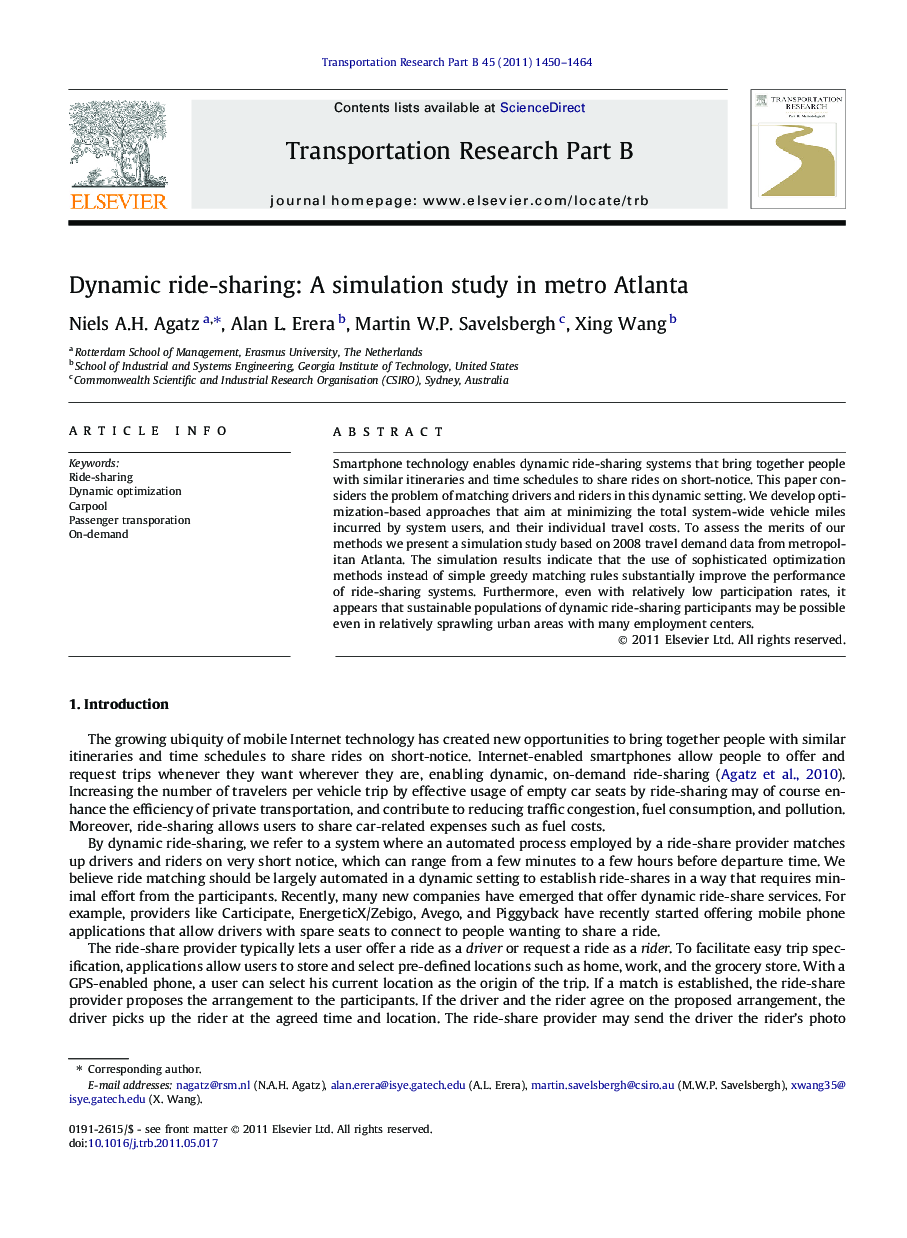| Article ID | Journal | Published Year | Pages | File Type |
|---|---|---|---|---|
| 1132549 | Transportation Research Part B: Methodological | 2011 | 15 Pages |
Smartphone technology enables dynamic ride-sharing systems that bring together people with similar itineraries and time schedules to share rides on short-notice. This paper considers the problem of matching drivers and riders in this dynamic setting. We develop optimization-based approaches that aim at minimizing the total system-wide vehicle miles incurred by system users, and their individual travel costs. To assess the merits of our methods we present a simulation study based on 2008 travel demand data from metropolitan Atlanta. The simulation results indicate that the use of sophisticated optimization methods instead of simple greedy matching rules substantially improve the performance of ride-sharing systems. Furthermore, even with relatively low participation rates, it appears that sustainable populations of dynamic ride-sharing participants may be possible even in relatively sprawling urban areas with many employment centers.
► We develop optimization approaches for dynamic ride-sharing. ► We build a simulation environment to test different dynamic ride-sharing concepts. ► We show that dynamic ride-sharing may increase the efficiency of urban transportation. ► We demonstrate the value of sophisticated matching techniques.
